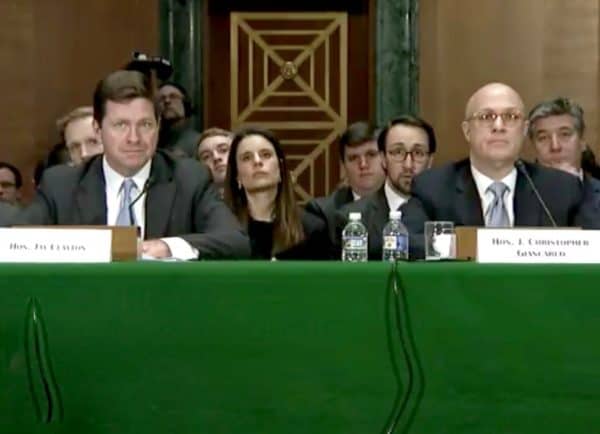Chairman of the United States Commodity Futures Trading Commission (CFTC) J. Christopher Giancarlo stressed that the agency’s commitment is to control, but not hinder, the development of the crypto-assets sector.
Giancarlo made his remarks during a speech on EU-US Regulatory cooperation for derivatives markets, presented at the Eurofi Financial Forum in Bucharest, Romania, on 4 April.
The chairman expressed his agency’s support for international efforts to analyze the effectiveness of the G20 derivatives reform program and to ensure that they strengthened, rather than strangled, the derivatives markets. He noted that the CFTC itself seeks to make its own rules and regulations simpler, less burdensome and less costly for market participants.
In this context, he highlighted the CFTC's positive approach to new derivative products for cryptoactives and other new technologies, suggesting that:
“We resisted calls to use our legal powers to suppress the development of cryptoactive assets. […] Instead, we advocated careful monitoring of market development, without hindering the introduction of new products, such as futures for bitcoins, which proved invaluable, allowing market forces to determine the appropriate value of bitcoin. ”
Regarding his latest claim, Giancarlo referred to research work from the Federal Reserve Bank of San Francisco in May 2018. The paper argues that the launch of Bitcoin futures trading (BTC) on the two main exchanges – the Chicago Mercantile Exchange and the Chicago Stock Exchange Options Exchange – significantly deepened the crypto derivatives market to offset one-sided speculative demand and provide a more balanced speculative demand. amendment to overestimated estimates.
Giancarlo had previously assumed that the CFTC permission for bitcoin futures was in line with the agency's program for introducing market solutions for innovation.
He also suggested that the creation by the agency of its own innovative technology center, LabCFTC, is fundamental to keep pace with the transformational technological changes and market development, which blockchain and cryptocurrency proclaim.
To date, two Fintech LabCFTC textbooks have been devoted to cryptocurrency and blockchain: virtual currencies in October 2017 and smart contracts in November 2018.
In December 2018, the laboratory asked the public and industry to comment on the Ethereum blockchain (ETH) as part of its assessment of the future resolution of Ethereum futures contracts.

